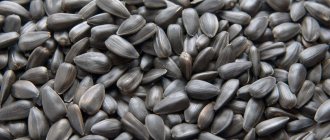Women during lactation want their diet to be varied and not harm the newborn baby. There is a whole list of foods that are allowed for nursing and that have a beneficial effect on peristalsis in the baby. But there are also those that provoke disorders in the baby. Doctors only approve of beef liver when breastfeeding, but what about other equally healthy types (chicken, pork, cod)?
Effect of the liver during breastfeeding
Nutritionists especially highlight liver among all offal products for its rich set of useful vitamins and macro-microelements. When breastfeeding, this product is mandatory and necessary to restore women's health and the normal development of the newborn.
Often the diet includes beef, pork, chicken and cod liver. Pork, unlike others, is considered undesirable and even dangerous by pediatricians. Composition of the product:
- B vitamins - with their sufficient supply, the brain and central nervous system function and develop normally.
- Vitamin A is responsible for the functioning of the thyroid gland, vision, and immunity. Acts as an antioxidant and restores damaged cells in the shortest possible time.
- Vitamin C – strengthens the immune system.
- Iron – participates in the process of hematopoiesis, stimulates the production of breast milk and saturates organs with oxygen.
- A lot of protein is a building material for the cells of the human body.
- Removes excess toxins.
- Folic acid, zinc and calcium - strengthen bones, develop nerve cells and skeleton.
- Omega-3 – present in cod liver. Has a positive effect on the body, especially on the cardiovascular system.
Almost all types of liver are similar in chemical composition. Only cod has a different set of useful substances.
Chicken
It is recommended to eat chicken liver before and after childbirth. Folic acid helps with pregnancy planning and fetal development in utero. Due to the huge content of vitamin B4 in it, the baby’s brain, coordination and memory develop.
During lactation, it is better to prepare pates from chicken liver or bake it in the oven, placing it in a pot along with vegetables. This dish helps food digest and is easily absorbed by the gastrointestinal tract. Eating poultry by-products 1-2 times a week will help a young mother recover after childbirth. Turkey is also suitable, it is more tender, but more expensive.
Beef
This offal is popular among young mothers. It is considered a dietary dish and contains the ideal amount of fats and proteins in its composition. The presence of selenium in beef liver protects the body from cancer and cardiovascular diseases. In cooking there are a lot of recipes in which it is present. It is often added to salads, pates, casseroles and rolls. It is useful to stew the offal in creamy sour cream sauce. And adding plums, apples or herbs will give the dish an interesting, bright taste. 80–120 grams of it per day will fill the need for microelements.
cod
Cod liver should be introduced into the diet carefully, similar to pork offal. From 3–4 months of age, this ingredient is necessary for the child; it contains a whole storehouse of minerals and vitamins. Cod is well digestible and does not cause adverse reactions. However, it also contains a lot of fat, so you need to eat liver little by little. Pediatricians advise consuming the offal as an additive to other dishes or with bread.
Pork
Pork liver is bitter, which is why it has lost popularity. Although proper preparation will remove the bitter taste from the dish. To do this, place it in water or milk for 1 hour, then change the liquid and leave it to soak for another 1 hour. For a nursing mother and her child, pig liver is useful for amino acids, phosphorus, copper and iron. This is an ideal product for women suffering from anemia or diabetes.
Pork liver can be introduced into the mother’s diet no earlier than the child is 3–4 months old. Cooking options: pancakes, pates, cakes.
Benefits of different types of liver
Beef liver for breastfeeding is allowed in the first weeks after the baby is born. Beef liver is considered the leanest and most dietary, as it contains the minimum amount of fat.
In addition, beef by-product contains a special substance called selenium. It is a powerful antioxidant that can prevent the possible risk of cancer. Regular consumption of the liver product is an excellent prevention of cancer.
Pork liver is also very useful for breastfeeding. The question is whether a nursing mother can have pig liver. Doctors are absolutely sure that it is the most healthy and nutritious. Unfortunately, many women do not dare to use this product, as it is characterized by increased bitterness. But with the right cooking method, pork liver acquires a delicate, pleasant taste.
In order to remove excess bitterness from the product, it must be soaked in milk or water at room temperature, and the liquid should be changed every hour. Soaking time: at least 2-2.5 hours. After this, the pork liver acquires a delicate taste, ideal for preparing a variety of culinary delicacies.
Chicken and turkey livers are considered fattier, but no less healthy. These products contain folic acid and choline. These substances have a positive effect on the immune system, brain functioning, memory and general well-being.
Cod liver is a healthy and tasty dish that can significantly diversify a nursing woman’s diet. Cod has unique properties and high fat content. Calorie content is 640 calories per 100 g of product. Therefore, more than 100 g of cod liver per day can lead to a sharp weight gain.
Due to the increased fat content, it is best to avoid eating cod liver during the first 2-3 months after birth, since the newborn’s body is not yet able to fully process this product. In addition, when eating offal, your baby increases the risk of developing skin allergic reactions, stomach cramps, colic and bloating.
Rules of use
In the first month of a child’s life, a mother during lactation is allowed to consume beef liver. It should be administered with caution; there is a risk of developing allergies in the baby. For the first time, 10 g of boiled or stewed liver is enough. You should avoid fried foods altogether. If the child does not show any concern, then the amount per time can be gradually increased.
Upon reaching 10 months of age, the baby can eat beef liver himself. It is boiled and crushed with the addition of breast milk. The dish is useful for children with low hemoglobin levels.
You can eat chicken liver without fear if you have gained excess weight during pregnancy. It is low-calorie, normalizes the functioning of the gastrointestinal tract and improves bowel movements. It is allowed to consume the offal during lactation 2-3 times a week, 80-120 g in the morning on a full stomach.
It is important to know that chicken and beef offal contain a lot of cholesterol. This is not dangerous when a person is healthy, but if a woman’s level of bad cholesterol is high, then regular consumption of liver dishes increases the risk of heart and vascular diseases.
Pork liver deserves special attention. It contains a lot of fat, and it should be introduced into the diet of a nursing mother 3 months after birth. At an earlier age, the baby’s body will not be able to process the product, since his digestive system has not yet matured. Restrictions on the use of cod liver have the same reasons.
At the first dose, the mother eats a piece equal to 1 teaspoon. Even if the newborn feels well, the daily norm should not exceed 100 g. When a premature baby is born, it is worth delaying the introduction of liver dishes. The doctor prescribes a diet for the woman in labor, and she must follow it.
Do not refuse to eat offal during lactation, it is tasty and nutritious. It will take little time to prepare the dishes, which is a plus for a young mother.
How much beef liver can a nursing mother eat and when to administer the product?
Nutritionists recommend that nursing mothers include beef liver in their menu by the end of the first month of the baby’s life. Of course, it is best to consume the product boiled or stewed and use a very small amount for the first tasting.
If within two days after your test the baby does not experience negative consequences in the form of a rash, redness or digestive problems, then you can slightly increase the amount of the product.
In any case, it is better not to consume a single serving of more than 100 grams, and you should treat yourself to beef liver no more than once or twice a week. This way you will not allow your cholesterol levels to rise too high and at the same time absorb all the beneficial vitamins and minerals, and also transfer some of them to your baby through milk.
Possible side effects
Liver dishes are not equally safe for everyone. Usually side effects are associated with individual intolerance. Restrictions on the use of the product for nursing mothers are due to the following factors:
- the likelihood of problems with the production of thyroid hormones;
- the risk of developing cardiovascular pathologies due to the high content of cholesterol in the by-product;
- food poisoning - if the animal was not properly cared for or the product was stale.
It is unsafe for a child in rare cases. Due to the content of animal protein, an allergic reaction sometimes develops:
- diarrhea;
- flatulence;
- bloating;
- colic;
- constipation.
Side effects are most often caused by cod or pork liver. Then you should exclude it from the diet and try again after 3-4 weeks. When choosing perishable by-products, check them for suitability. Fresh liver - no white spots, even, red color. Preference is given to beef or chicken liver.
Damage to beef liver while breastfeeding
However, despite all such significant advantages, beef liver also has a number of harmful properties, and quite significant ones.
It should be noted right away that this has nothing to do with its function - filtering harmful and toxic substances. There is a myth that all these harmful compounds remain in the liver and are transferred to the body when eaten, but this is not true. The offal contains only enzymes that help neutralize toxic substances, which, by the way, are beneficial for humans
The main harmful properties of beef liver are partly associated with its excessive consumption:
- Beef liver contains 430 mg of cholesterol, and therefore its daily consumption can lead to serious diseases of the cardiovascular system.
- Too much copper in the body can cause liver damage.
- An excess of vitamin A has the same consequences as a deficiency.
- In a child, beef liver can cause allergies or digestive problems, so you need to carefully monitor his reaction after introducing this product into your diet.
- If the animal was raised in poor conditions and fed with various additives, then residues of harmful substances may be observed in the liver.
That is why it is important to choose beef liver only from a trusted manufacturer and beware of market products, at least during breastfeeding. You should also follow the rules for introducing this product into your diet and do not consume it more than the recommended amount.
How to choose?
The main thing to remember when choosing chicken liver is that this product is classified as perishable. Therefore, under no circumstances should you purchase a liver with an expiring date. If you notice that it emits an unpleasant odor, do not cook or eat it under any circumstances!
It is advisable to purchase liver from farmed chickens that are raised in environmentally friendly conditions. This product is more expensive than what can be found on supermarket shelves, but the baby’s health is more valuable than money. Usually in each city there are shops selling products from a specific farm. It is advisable to find such a store and buy it only there. Always inquire about the production date of the product: you can ask to see special documents and certificates that prove that you are buying fresh liver.
Store the liver in the freezer. In the refrigerator, the product will quickly begin to deteriorate: after two days the product will become unfit for consumption. The liver should have a dark color without white spots, the surface of a good liver should be smooth, and no blood clots can be seen on it.
If possible, choose refrigerated rather than frozen. Assessing the quality of frozen liver is quite problematic; in addition, supermarkets often change production dates.
Recipe options
It is not necessary to eat regular liver while breastfeeding. It is better to eat it with other foods, as well as vegetables and cereals. For example, cod is good to eat as a salad. You need to add an egg, lemon juice and olives to it. This healing salad is very valuable and beneficial for the mother.
Beef liver should be boiled and then cut into small pieces. Then you need to grate the carrots and onions, fry them a little and add the quail eggs. Then mix all the ingredients and make a salad. It turns out to be a very nutritious and tasty dish.
Pork liver is also suitable for use during breastfeeding, but you need to eat it carefully. It is important to consider the amount of food eaten, since abuse can greatly harm the body.
Harm and contraindications
Liver dishes are contraindicated for people with problems with high blood cholesterol. Dishes made from this product are contraindicated for a nursing mother if she has:
If you have diseases of the stomach and intestines, it is better to abstain from chicken liver
- Pancreatitis.
- Any diseases of the urinary system.
- Stomach or duodenal ulcer.
- Gastritis.
- Allergy.
- Individual intolerance.
Such a product can cause great harm if stored incorrectly or stored using chemicals. By-product obtained from sick birds or from birds fed artificial feed with the addition of antibiotics is also harmful to the human body.
Chicken liver











